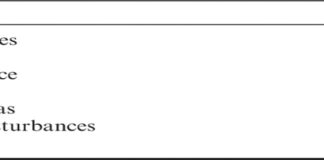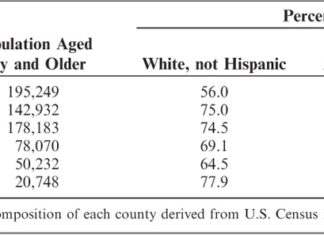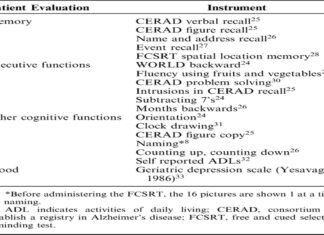Connectome-based modelling of neurodegenerative diseases: towards precision medicine and mechanistic insight
Elahi, F. M. & Miller, B. L. A clinicopathological approach to the diagnosis of dementia. Nat. Rev. Neurol. 13, 457–476 (2017).Article
PubMed
PubMed Central
...
A fitness tracker for brain health: How a headband can identify early signs of...
Researchers from the University of Colorado Anschutz Medical Campus and Washington University in St. Louis have identified a way to assess brain activity in sleep that occurs in the earliest stages of Alzheimer's disease,...
Effect of apolipoprotein genotype and educational attainment on cognitive function in autosomal dominant Alzheimer’s...
APOE e4 has long been associated with increased risk and earlier age of onset for sporadic AD1,2,17,18,19,20. A rare variant on the APOE e3 allele was found to delay onset of MCI by three...
Which is easier to remember, symbols or words?
Everyday symbols like &?!#@$ are highly memorable, according to new research.
The new study led by the University of Waterloo aimed to investigate how well symbols are remembered compared to words with the same meaning.
"Our...
Study identifies neural dynamics that our visual system uses to transform what we see...
When we use our working memory, we temporarily retain information in our brain. For instance, you are able to comprehend this sentence because you are briefly storing in working memory each of the words...
Recruitment of a Community-based Cohort for Research on Diversity and Risk of Dementia
We describe the history, development, and success of the recruitment and screening procedures used by researchers at the University of California, Davis Alzheimer's Disease Center (UCD ADC) to facilitate minority enrollment in research. After...
Neuroscientists successfully test theory that forgetting is actually a form of learning — ScienceDaily
Neuroscientists today report the first results from experimental tests designed to explore the idea that "forgetting" might not be a bad thing, and that it may represent a form of learning -- and outline...
Free and Cued Selective Reminding Identifies Very Mild Dementia in Primary Care
The Free and Cued Selective Reminding Test (FCSRT) is used widely to identify very mild dementia; 3 alternative scoring procedures have been proposed based on free recall, total recall, and cue efficiency. We compared...
Certain sugars affect brain ‘plasticity,’ helping with learning, memory, recovery — ScienceDaily
Can you recognize someone you haven't seen in years, but forget what you had for breakfast yesterday? Our brains constantly rearrange their circuitry to remember familiar faces or learn new skills, but the molecular...
Reduced body cell mass and functions in lower extremities are associated with mild cognitive...
ParticipantsIn this study, a total of 1134 participants were recruited at the Gwangju Alzheimer’s Disease and Related Dementia (GARD) center (Gwangju City, South Korea) from 2019 to 2021. Each participant or their legal guardian...



























